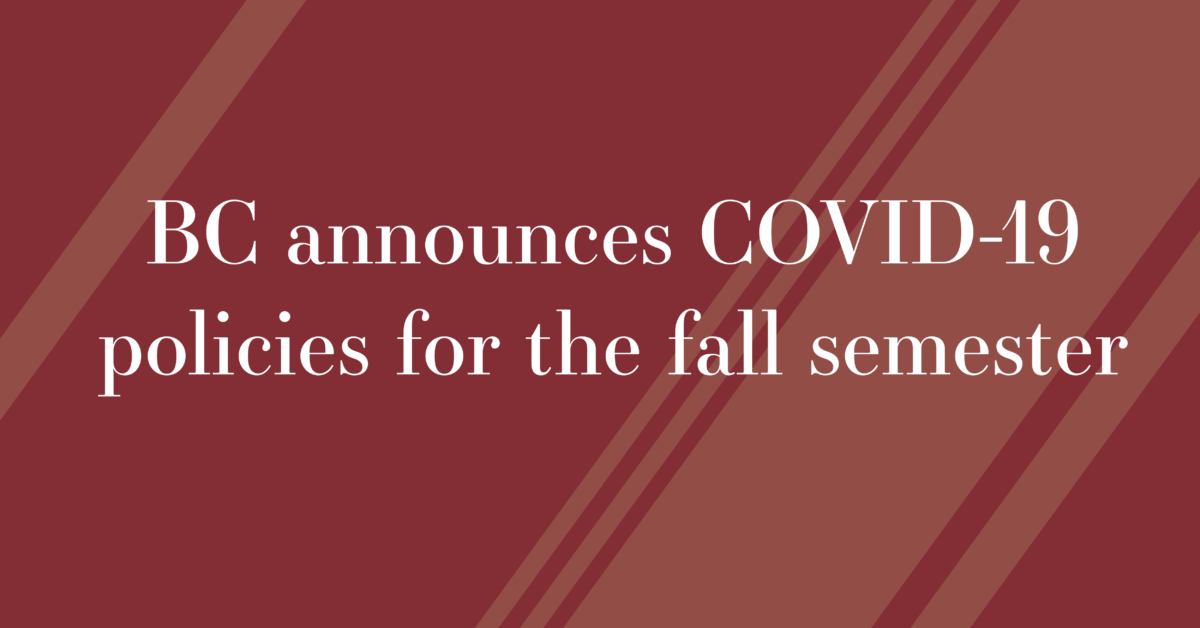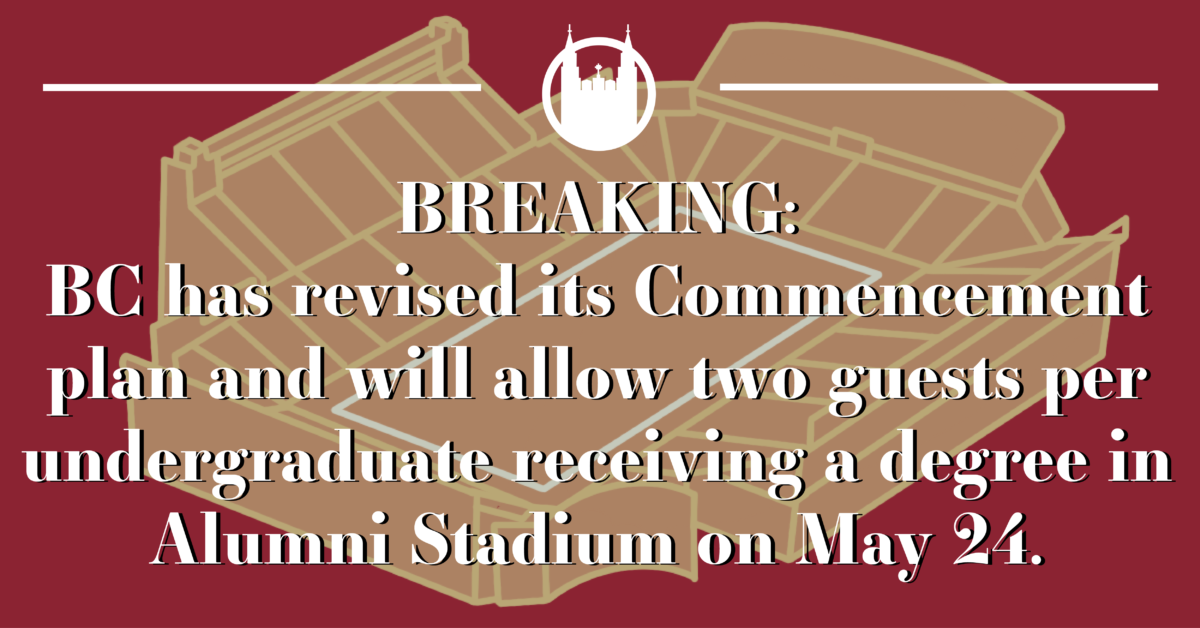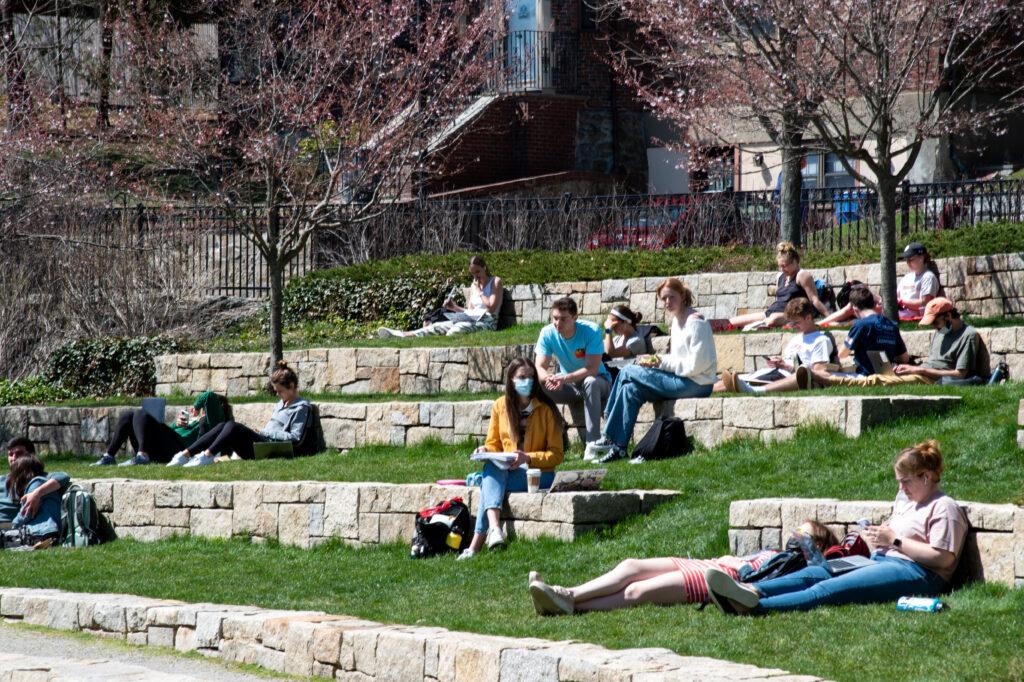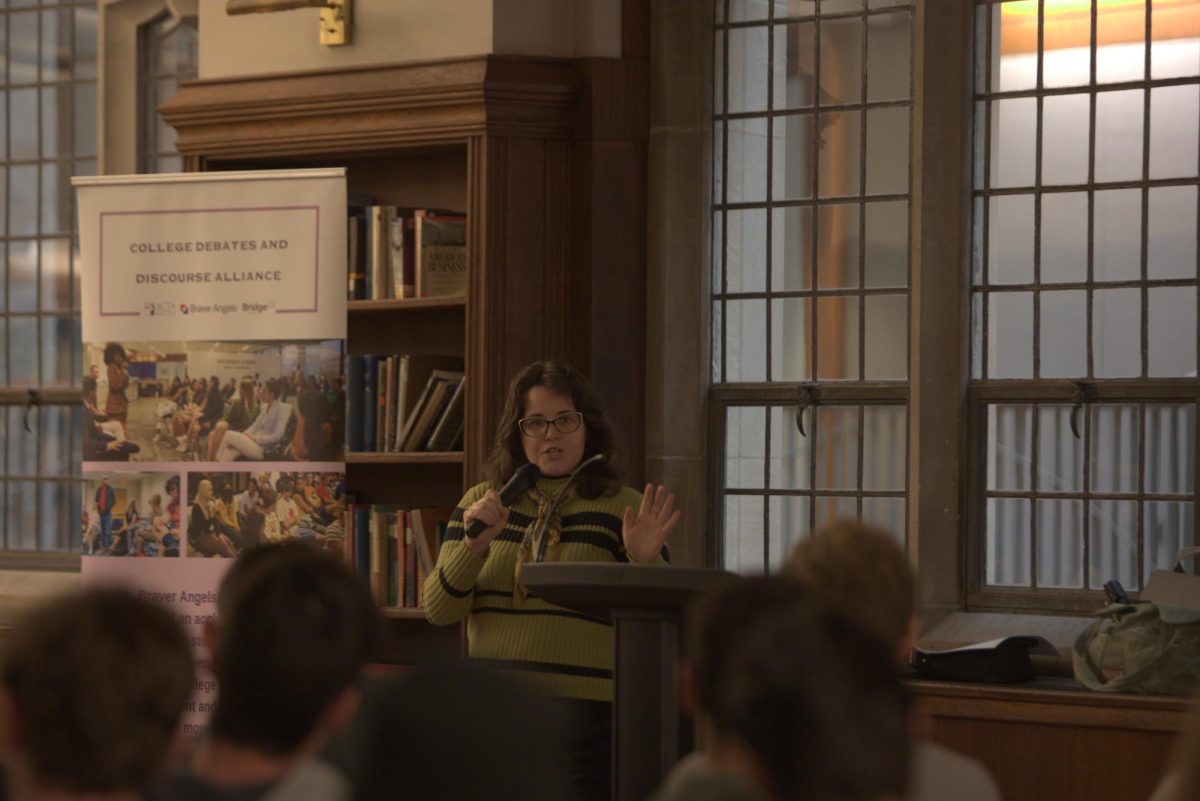Several Boston College professors have altered their course policies and schedules in response to the novel coronavirus outbreak, with some changing attendance policies and others moving classes online. The University has not made the decision to move all classes online due to the novel coronavirus, and there are no cases of the virus at Boston College, Associate Vice President of University Communications Jack Dunn said on Tuesday.
As BC students resumed classes on Monday after Spring Break, various individual professors alerted students of changes they would be making in response to the spread of the coronavirus.
BC students began circulating a Change.org petition on Monday night calling for the University to move to online classes as a preventive measure to limit the spread of the virus. The petition garnered 2,417 signatures on the petition at the time of publication. Vice President for Student Affairs Joy Moore responded to the petition on Monday saying that the University is remaining open for the time being.
Faculty have been advised to provide reasonable accommodations for students should they become ill or quarantined, Vice Provost for Undergraduate Academic Affairs Akua Sarr said in an email to The Heights on Monday afternoon. Such accommodations include extensions on assignment deadlines, make-up exams, and excused absences. Faculty have also been advised to be flexible in allowing absences and make-ups for those who are not feeling well and to not require medical documentation from students so that the University Health Services staff is not further overwhelmed.
“The university is proceeding with face to face instruction, while allowing individual faculty to determine how to proceed if they need to make alternative arrangements for continuity of instruction,” Sarr said in the email.
Although the University has not implemented a school-wide online class policy, various professors have precautionarily transitioned to replace in-person meetings with online classes. Computer science professor Nam Wook Kim told students in an email late Sunday afternoon that he would be teaching remotely for the next two weeks “rather than waiting for something to happen.”
In an email to students on Monday, professor Yuxin Gai, who teaches Elementary Chinese Practicum, said she would be canceling all in-person classes and teaching remotely. She explained that her decision to make this adjustment came as a result of the various emails she received from students and their parents expressing concern about the virus.
“I’ve decided to conduct the class remotely to keep the learning experience consistent for everyone in the class,” she said in the email to students.
This week, the Center for Teaching Excellence sent an email to faculty who use Canvas for their courses that provided them with instructions as to how to proceed with courses using online resources.
“Faculty throughout the University are receiving a lot of information these past few days about how to best use technology to support online teaching in the event the University deems this necessary across the board,” Howard Straubing, professor and chair of the computer science department, said in an email to The Heights.
The email from the Center for Teaching Excellence included instructions as to how to operate the Canvas feature of Panopto recordings, which allows for professors to post pre-recorded lectures online. It also included a guide to using Zoom, a software that allows for virtual communication between professors and students. Additionally, it provided a schedule for in-person and virtual workshops to assist professors in these tools.
Other professors have communicated to students that they will no longer be taking class attendance to avoid penalties for students who may have contracted the virus or for those who are concerned they may contract it. Professor Jeremiah Morelock, a doctoral candidate in the sociology department, communicated in an email on March 2 to students in his Sociology of Health and Illness course that he would no longer be taking attendance.
In an interview with The Heights, Morelock explained that his decision to make this change was due in part to seeing trends on social media of professors moving online. It was also in response, he said, to dialogue among various BC professors who wanted to give students the option to be able to miss class without penalty even if they haven’t necessarily been diagnosed with the virus.
“Even if it’s just for the sake of people’s anxiety levels, people don’t want to be sitting in a room with other people coughing right now,” Morelock said. “It’s really more for the people who aren’t sick than the ones that are. I just don’t want people to feel like they’re required to come to class and sit next to someone who they’re worried is giving them the coronavirus.”
Morelock explained that he typically places a lot of emphasis on class participation, but in light of the situation, he will not be penalizing students for lack of participation if they are not present in class.
Jonathan Beebe, professor and assistant department chair for operations management in CSOM, also announced in an email to students on Saturday that he would stop recording attendance. He also encouraged students not to come to class if they are feeling ill and reminded them that all lectures are posted on the Panopto Recordings feature on Canvas.
Other professors elected to alter their course policies in response to the outbreak. On Monday, History professor Yajun Mo emailed students of his course, Asia in the World II, to alert them that she would no longer be giving pop quizzes until the situation has improved in order to alleviate worries of students who may have to miss quizzes if they are absent due to illness. She said in the email that she would post PowerPoints with notes on Canvas for the time being and that she is prepared to move online if the spread of the virus escalates.
Psychology professor Gene Heyman told students enrolled in Introduction to Brain, Mind, and Behavior via email on Monday that he would continue lecturing in class as usual but would be posting video recorded lectures on Canvas for students who are unable to attend class or do not feel comfortable doing so.
Heyman also said in the email that he would no longer be counting points for “clicker” questions, in which students use individual remotes to answer questions the professor presents during class, but would continue to ask questions in class to facilitate the class material. He also said that he would likely have to revise the grading scale for the course in order to account for the weight of the clicker scores.
“This will end up putting more weight on the exams, which in my mind is not ideal,” Heyman said in the email.
Featured Image by Leo Wang / Heights Staff



















